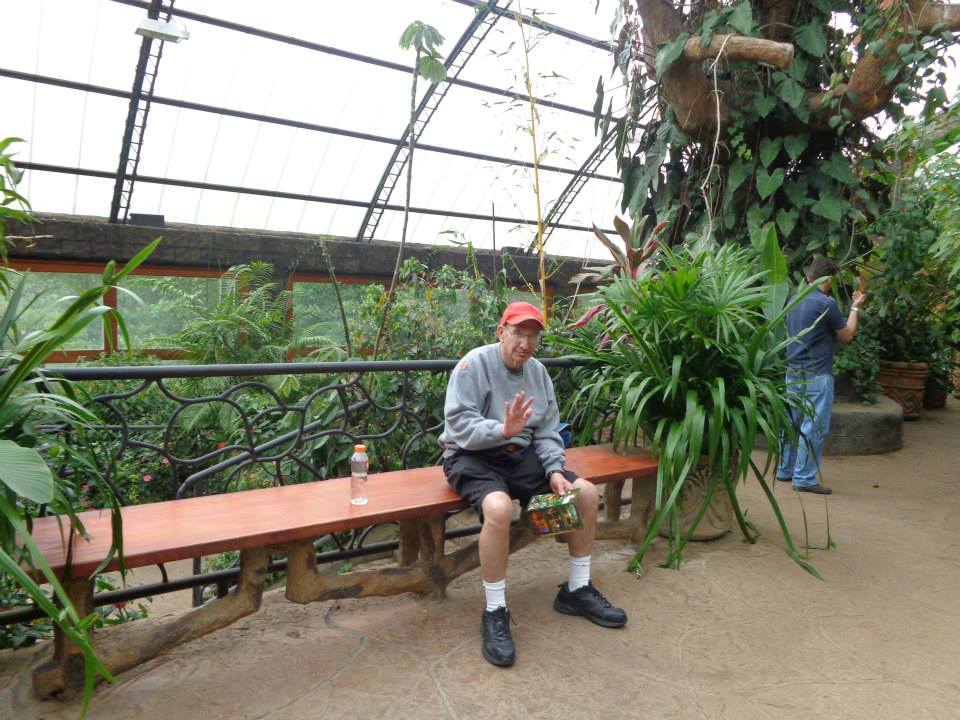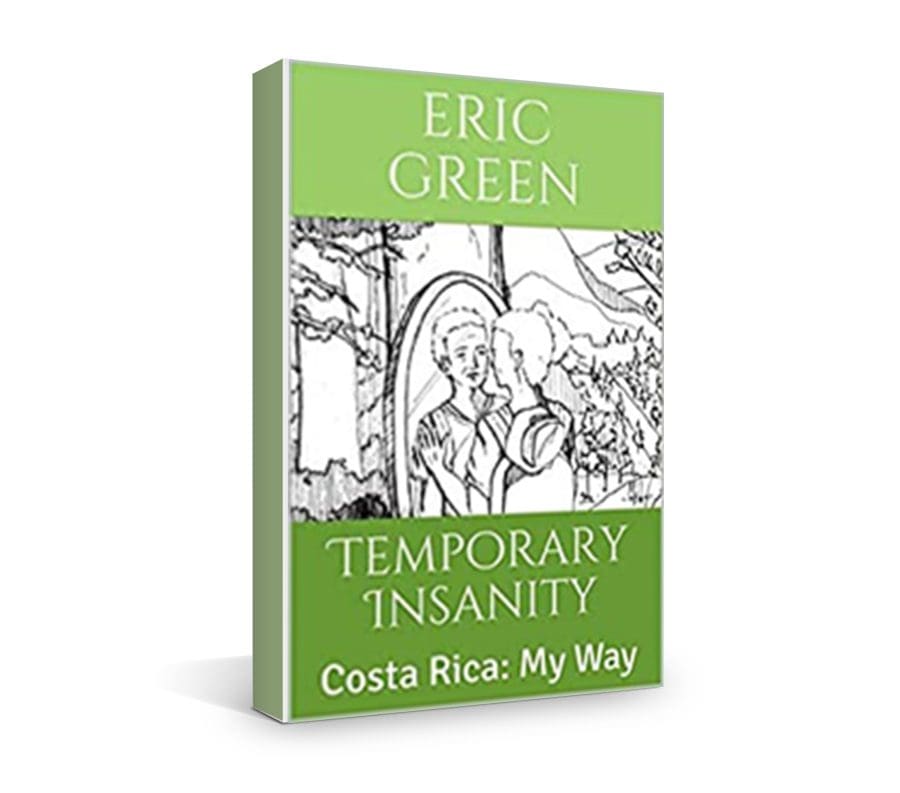
Easy As Pie In Costa Rica
Adapted from the book Temporary Insanity — Costa Rica: My Way, chapter 4
On my first full day in Costa Rica, I emerged from the cafeteria of the Costa Rican-North American Cultural Center in San José, where I had bought a hamburger and coke after a day of studying Spanish. It was nearing the 6 o’clock hour, the usual time for sunset in Costa Rica.
I became aware of a real problem. My goal was to go back to the house where I was staying in a San José suburb, but had lost the note telling me what bus number to take to my destination, not to mention the home address and phone number. Worse, I couldn’t even remember the name of the suburb where I was staying. It sounded Indian, that’s all I knew.
I got on the first city bus that seemed to go in the right direction. It was mobbed but I found a seat in the far back. Every so often, someone would yank a cord by the window which signaled the bus driver to stop. Sometimes, the cord didn’t work. That meant yelling “parada” (stop).
Feeling self-conscious and worried about my American accent that would further mark me as a foreigner, as if my bus companions didn’t know it already, I sat there trying to figure out when it was my stop. Finally, after seeing a church that looked familiar, I stumbled up front to the driver and signaled to let me out. The door opened. I tumbled off the steep steps and into a ditch filled with sewage. It was my birthday. What a way to celebrate it.
Apparently, I hadn’t broken any bones. But I smelled like manure. I wondered if this ditch was anywhere near where I was staying. There was nothing else to do but start walking until I could get under a streetlight and somebody could see me as darkness approached.
I stuck out a thumb, what I hoped was the universal sign for hitchhiking. Though I could just imagine how I looked like garbage, somebody eventually picked me up. His dashboard was crowded with icons of Jesus, crucifixes, and an image of St. Jude, the patron saint for hopeless cases. Even though I’m not the religious sort, that felt hopeful. I told him in my pigeon Spanish I was lost, in more ways than one.
He laughed. “No problema,” he said. Maybe not for him.
We must have driven around the neighborhood for at least a half-hour as I tried to give a physical description of the house, which seemed to match how all the houses looked.
Finally, I recognized another church where I had boarded the bus that morning for Spanish class. We had to be close. We drove around and around until coming to a street that looked familiar. I tried to pay this saint for his heroic efforts, but he refused to take a colón or even a U.S. dollar bill. I got his name and address and said I at least owed him a thank-you card. He must have felt sorry for this sorry smelly visitor to his country. He walked with me to the house to make sure it was the right one. I vowed that if ever the roles were reversed I’d do the same for him. I meant it too — this Costa Rican guy’s unbelievably good deed would be reciprocated in kind.
I was so relieved to see the Costa Rican family where I was staying and they looked glad to see me too although they must have wondered where I had been all this time and why my clothes were caked in mud and excrement.
(Later, when I got my wits about me, I realized the family’s house was in a suburb called Curridabat.)
The family asked if I had encountered any trouble finding their house.
“No problema. Easy as pie,” I lied, using an English idiom they must have misinterpreted because they offered me a piece of their leftover dessert.
“No thanks,” I said, giving the thumbs up. They gave me the thumbs up back. Yeah, rolling in urine and filth was a perfect way to enjoy my birthday and first full day in Costa Rica. But my visit had to get better, right?

Eric Green’s book Temporary Insanity — Costa Rica: My Way is available at amazon.com in both Kindle e-book and paperback format. The author describes it as a journalistic travelogue — part humor, part autobiographical — of his repeated journeys to Costa Rica. In more reflective parts, he discusses the Nicaraguan diaspora in Costa Rica, the country’s high ranking for environmental sustainability and economic disparities between different population segments.
One reviewer, in giving the book a five-star rating, described it as “an interesting emotional journey that makes for great vacation reading.”
For more information and to read sample chapters, click
https://www.amazon.com/Temporary-Insanity-Costa-Rica-Way-ebook/dp/B07XTJ33G7
